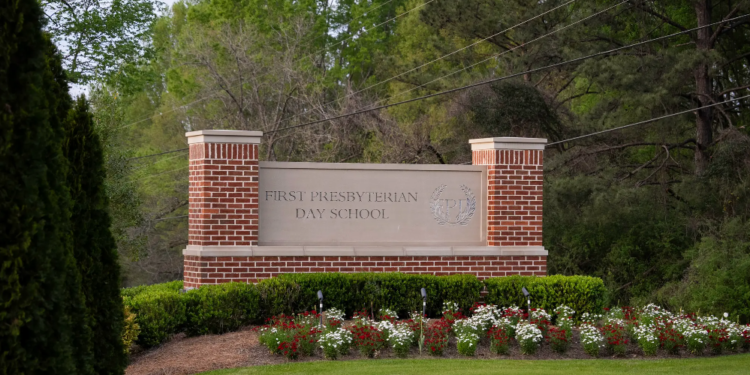Nov 19, 2024 Story by: Editor
A lively 76-year-old woman takes her seat at the dining room table, ready to reflect on a challenge her family has faced for decades. Samaria “Cookie” Mitcham Bailey, as a teenager in 1964, was among the first Black students to integrate public schools in Macon, Georgia. Despite enduring hardships, she remained hopeful that future generations would achieve the equality she had been denied.
Now, Cookie’s hope rests with her 13-year-old great-granddaughter, Zo’e Johnson.
Zo’e, who sits quietly at first, had a tough experience last year in sixth grade at a public middle school she found “chaotic.” After considering their options, her family chose First Presbyterian Day School (FPD) for its strong academics, Christian values, and competitive tennis program, appealing to their family of tennis enthusiasts.
However, FPD is not just any private school. Established during desegregation, it is one of many so-called “segregation academies” that emerged as white families left public schools. Research by ProPublica highlights five such schools in Macon, including FPD, which remain predominantly white today.
FPD, with 11% Black students in the 2021-22 school year, has the highest Black enrollment among these schools. Yet, tuition, approximately $17,000 annually for seventh grade, poses significant challenges for many Black families, as the median income for Black households in Macon is about half that of white households.
Cookie has been funding Zo’e’s education, with nearly half of the tuition covered by a state voucher-style program. She pays $900 monthly to make up the difference but worries about continuing to afford it as she nears retirement.
“I’m older,” Cookie says softly. “I’m getting old.”
Zo’e’s mother, Ashley Alexander, a single parent working part-time, cannot take on the financial burden. Ashley notes, “I feel like you get the better opportunity at the Caucasian school. The education is better. It’s just so expensive. We’ve been looking for some alternatives.”
Zo’e, however, is determined to stay at FPD. She appreciates the calm environment, Christian teachings, and the school’s tennis team — opportunities unavailable at her previous school.
“I love FPD,” Zo’e says.
Zo’e’s father, who was killed when she was six, had supported private schooling for her older half-brother, now an NFL player. Zo’e believes he would be proud of her accomplishments at FPD.
Despite the school’s welcoming atmosphere, Zo’e noticed the absence of Black teachers. The only Black staff she saw worked in janitorial or cafeteria roles. This echoes the segregation Cookie experienced in her youth when she volunteered to integrate a white school.
Cookie recalls a painful incident when a white classmate asked, “Do you have a tail?” Decades later, Zo’e shared how a white boy called her Black friend a “monkey.” Cookie, visibly upset, exclaimed, “They’re still calling Black folks monkeys!”
Zo’e’s focus remains on excelling academically and on the tennis court, a passion she inherited from her great-grandmother’s tennis-playing legacy. Cookie, a trailblazer herself, attended Mercer University despite discouragement from a high school guidance counselor. She became one of Mercer’s first Black graduates, defying systemic racism and integrating new spaces.
In Macon, efforts to resist school desegregation in the 1960s included creating private schools like Stratford Academy. These schools, dubbed “segregation academies,” became havens for white families seeking to avoid integration, while public schools in the city remained predominantly Black and underfunded.
Cookie’s story and Zo’e’s journey highlight the lasting legacy of segregation, the fight for equal opportunities, and the resilience of families determined to break barriers despite systemic challenges. Source: ProPublica

















